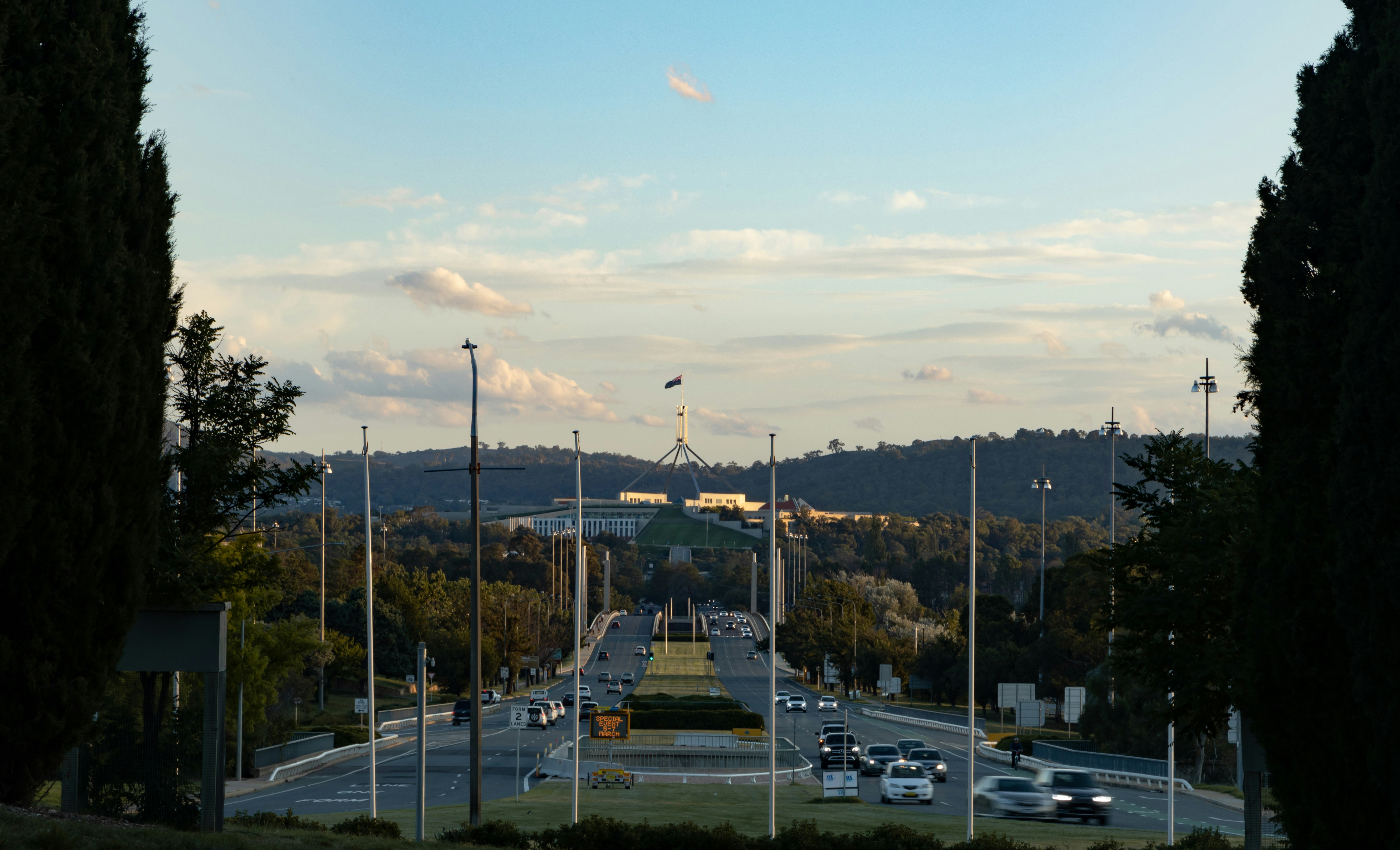
Address To 2025 National Consumer Congress, Melbourne
I acknowledge the Traditional Owners of the land on which we meet – the Wurundjeri Woi‑wurrung people of the Kulin Nation – and pay my respects to their Elders past and present.
Consumer protection matters everywhere, but its importance is especially clear in First Nations communities. A recent case reminded us of the serious harm that can occur when companies exploit Indigenous customers – and of the regulator’s willingness to act when that trust is breached.
I thank each of you for being here – consumer advocates, regulators, researchers, and business leaders. It’s great to be speaking to a room full of people who actually read the digital services agreements the rest of us scroll past on the way to ‘Accept All’.
The theme of this year’s National Consumer Congress – Who can we trust? – goes to the heart of what it means to have a functioning economy. Trust is not an optional extra. It is not a marketing gimmick or a nice‑to‑have. It’s the foundation on which every transaction rests.
These days, trust is harder to earn than an Uber 5‑star rating – and once lost, just as hard to claw back.
If you buy a carton of eggs, you trust that it won’t make your family sick. If you purchase a fridge, you trust that the energy rating is accurate. If you take out a home loan, you trust that the terms have been fairly disclosed. And if you complain, you trust that someone will listen – and act.
When that trust is absent, we all pay the price. Markets become less efficient. Consumers become more cautious. The playing field tilts towards those who can afford to game the system.
But when trust is present – when people believe the system works for them, not just for the powerful – they engage more confidently, spend more freely, and contribute to stronger and fairer markets.
Australia has made significant strides in building that trust.
Our national, unified approach under the Australian Consumer Law – the ACL – has simplified and strengthened protections. Before it was introduced in 2011, consumer law in Australia meant navigating more than 20 different sets of rules across states and territories. It was a bit like assembling IKEA furniture without instructions – you could get there eventually, but not without a few missing parts and some colourful language.
Today, we have a single, coherent system embedded in the Competition and Consumer Act – clearer for consumers, and more consistent for businesses.
The ACL enshrines core economic principles: efficient markets, confident consumers and fair competition. It ensures that businesses are not just competing on price, but on trustworthiness.
It sets out clear consumer guarantees – so Australians know their rights. It prohibits misleading or deceptive conduct – so markets aren’t distorted by lies. Thanks to reforms our Labor government passed in the last term of parliament, it penalises unfair contract terms – so standard form contracts aren’t just ‘take it or leave it’ traps.
And it gives regulators the clarity they need to act, and businesses the certainty to comply.
In short, the ACL was the most significant consumer protection reform in Australian history. It has helped to lower legal costs for businesses, reduce confusion for consumers and strengthen enforcement for regulators.
But markets don’t stand still. And nor can our laws.
That’s why the Albanese government is advancing a consumer agenda that responds to today’s complexities, not yesterday’s assumptions.
We’re acting to make the system fairer, simpler, and more trustworthy in a rapidly changing economy.
This includes:
We’re also reviewing how AI‑enabled products and services are regulated – ensuring the legal framework keeps pace with the technological one.
Another important area is the right to repair, being addressed through National Competition Policy. It’s a principle that saves consumers time and money while reducing waste. Done well, it balances safety, innovation and intellectual property with basic fairness.
Whether it’s software that shapes what we buy or gadgets that quietly collect our personal information, the landscape for consumer protection is shifting fast. Australia must keep pace – and we intend to do just that.
We’re advancing this work in collaboration with state and territory ministers. And let’s be honest – getting every government in Australia to agree on anything is no small feat. The fact we have a single consumer law might be our greatest national achievement since the invention of the flat white.
I want to recognise the vital work of the Australian Competition and Consumer Commission – a regulator that continues to combine rigour with public trust, and delivers results where they matter most.
Earlier this year, the ACCC released its 2025-26 compliance and enforcement priorities. They include:
With targeted government funding, the ACCC is sharpening its focus on competition issues in the supermarket and retail sectors – especially where firms wield market power or engage in conduct that harms small businesses. It is also addressing consumer and fair trading concerns in these sectors, including misleading pricing practices.
Across all these areas, the goal is the same: to give Australians more confidence that the marketplace works for them.
Fair markets don’t just protect consumers – they discipline firms. When businesses know they can be undercut, they behave better. When they know there’s no meaningful competitor, the temptation to act poorly often grows.
That temptation can take many forms. It might be aggressive sales tactics, misleading apps or contracts loaded with traps. When companies grow too dominant – or operate in spaces where oversight is thin – we often see the same pattern: poor behaviour, vulnerable consumers and harm that could have been avoided. Let me give you some examples of what this looks like in practice.
In a remote Indigenous community, Aunty June walked into a Telstra store looking for a simple mobile phone. She walked out with multiple postpaid contracts she didn’t understand, extras she didn’t ask for and monthly bills she couldn’t afford. In 2021, the Federal Court fined Telstra $50 million for unconscionable conduct. Sales staff had exploited language barriers and financial vulnerability to push unsuitable contracts onto people who didn’t even realise what they’d signed.
Josh, meanwhile, downloaded an app called ‘Onavo Protect’ because it promised to keep his data secure. What it actually did was quietly send his online activity to Meta. In 2023, the Federal Court fined Meta subsidiaries $20 million for misleading conduct. In effect, a product sold as a privacy shield turned out to be a surveillance tool.
Melissa took her broken iPhone to Apple, only to be told she wasn’t eligible for a repair because she’d once used a third‑party technician. But under the ACL, she had every right to a remedy. Apple paid a $9 million penalty for misleading customers about their rights.
And Liam, who bought a faulty refurbished phone online, was wrongly told he had no rights after 14 days. The ACCC intervened. Reebelo paid infringement notice penalties. Consumers don’t check the fine print of federal legislation when they buy a product – but companies should.
Then there are safety breaches that affect families. A small toy in a child’s meal lacked the required button battery warning. In 2025, Hungry Jack’s was penalised for breaching mandatory safety standards. These rules exist for a reason – to protect our children.
Finally, David, a carer, tried to leave a platform that provided aged care and disability support workers. He found himself trapped by unfair terms, including unfair penalties. Following ACCC action, the company amended its contracts to make them fairer and more transparent.
What links these cases is not just poor behaviour. It’s the confidence that comes from market dominance. These weren’t fringe players. They were big firms taking liberties – with people’s rights, their data, even their safety.
That’s why the Albanese government’s competition agenda – from merger law reform to revitalising National Competition Policy – is not separate from our consumer agenda. It’s the foundation of it. Because a competitive market doesn’t just lower prices. It raises standards.
But protecting trust isn’t a one‑off task. It’s something governments must earn, case by case, reform by reform.
New challenges are already here – and more are coming.
AI and automation are reshaping the products we use and the services we rely on. With that comes the risk of opaque decisions, embedded bias and new forms of exploitation.
Scams are growing more sophisticated, with deepfakes, spoofed numbers and social engineering becoming commonplace.
Greenwashing threatens to erode public support for genuine sustainability efforts, as vague claims replace verifiable credentials.
Digital dark patterns are proliferating. Dark patterns are the online equivalent of a salesperson who won’t let you leave the store. Only now they come with pop‑ups, countdown timers and a suspiciously urgent 15 per cent discount.
And globalisation continues to complicate enforcement, as e‑commerce platforms stretch across borders and jurisdictions.
Our regulators are talented and dedicated. But they also need stronger tools – especially in the digital and global domains.
Why does all this matter?
Because consumer protection is not just about policing the bad apples. It’s about shaping the orchard.
It’s about designing markets that reward integrity, not trickery. That reward innovation, not obfuscation. That make life easier for families, not more confusing. That treat fairness not as an ideal, but as a baseline.
And in doing so, we build an economy that is not just more productive – but more inclusive, more resilient and more human.
Inclusion, after all, isn’t just about justice. It’s also about performance. A market that includes more participants, with better information and stronger protections, functions better. It delivers more value. It fosters more competition. It earns more trust.
So my message to you today is simple: we need your help.
Trust is earned – not given.
Building trust is not a job for government alone. It requires cooperation – between public servants and parliamentarians, researchers and regulators, advocates and industry.
When laws are co‑designed with those on the ground, they’re more likely to work.
When information is shared – about scams, about risks, about what’s really happening – we’re all better equipped to act.
When enforcement is fair, timely and transparent, compliance improves.
When we listen to consumers, not just lobbyists, we get policy that reflects real lives.
And when we collaborate, we don’t just protect the public – we build a better public square.
Because at the end of the day, protecting consumers is about one thing: making sure the system lives up to the trust Australians put in it – every time they tap a card, sign a form or click a button.
https://ministers.treasury.gov.au/ministers/andrew-leigh-2025/speeches/address-2025-national-consumer-congress-melbourne


